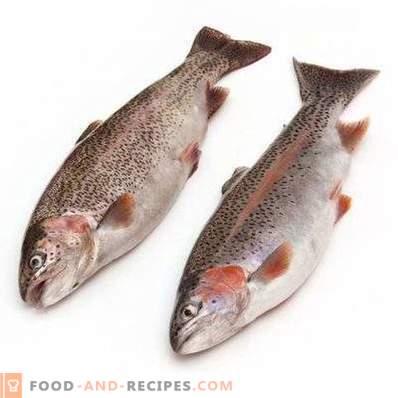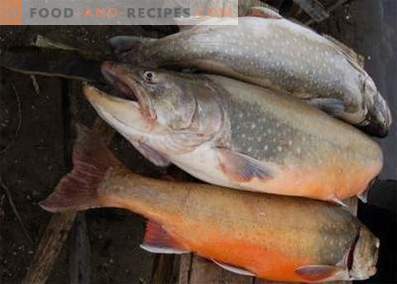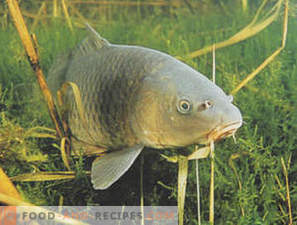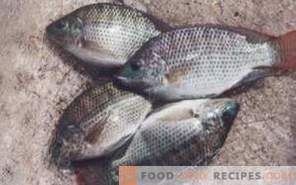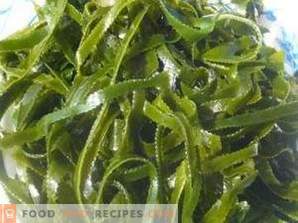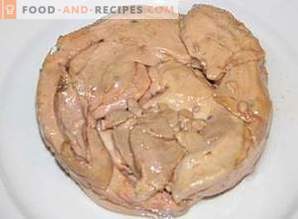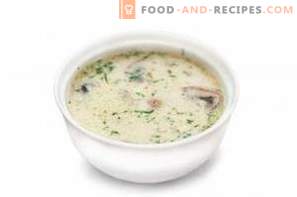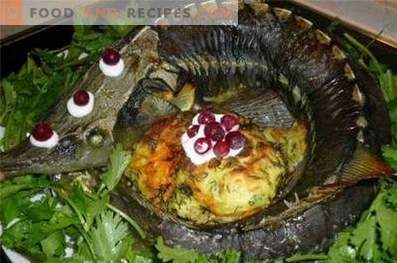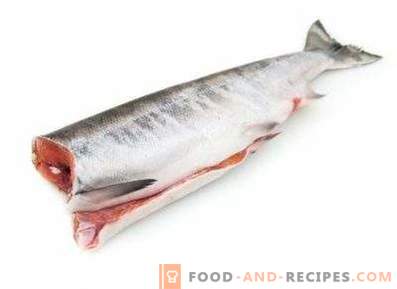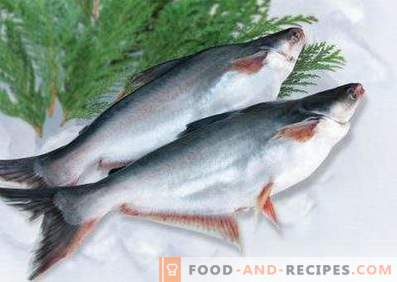
Pangasius, or shark catfish, is a ray-like fish belonging to the Pangasiev family. Representatives of this species live in large rivers and lakes of Southeast Asia (Tonle Sap, Chauphraya, Mekong, etc.). In addition, they are grown in artificially created ponds for industrial purposes.
Pangasius has an elongated flattened body without scales, a flattened head with a blunt snout and a large mouth with two pairs of antennae, vaguely resembling a catfish. The back of the fish is dark gray, the sides and belly are silvery-white, the fins are black. Juveniles have a dark band on the body along the lateral line.
Sok sharks can reach impressive sizes. In the wild, individuals are often 120-130 cm long and weighing 35-45 kg. At the same time, the body weight of fish grown in artificial water bodies rarely exceeds 1.5 kg.
On the shelves of shops it is very difficult to find whole carcasses of shark catfish. As a rule, only fillet and fat free bones are sold. The leader in the supply of pangasius to the international market is Vietnam. The farms of this country annually sell over a million tons of this fish.
Shark catfish fillets are fried in breading or batter, baked in foil and cooked. In addition, fish is used to make cutlets, soups, salads, aspic, appetizers, fillings for pies and rolls,
Nutritional value
A 100 g pangasius fillet contains:
- 14, 913 g of proteins;
- 2, 879 g of fat;
- 1, 514 g of ash;
- 80, 066 g of water.
Along with this, fish contains 8 essential and 10 essential amino acids, a small amount of fatty acids.
Vitamins in the fillet
Shark catfish fillet contains a whole complex of vitamins. 100 g of this product is present:
- retinol equivalent (A) - 0, 984 mg;
- thiamine (B1) - 0, 026 mg;
- ascorbic acid (C) - 2, 285 mg;
- niacin (PP) - 2, 108 mg;
- choline (B4) - 0, 647 mg;
- Riboflavin (B2) - 0, 084 mg;
- pantothenic acid (B5) - 0.668 mg;
- pyridoxine (B6) - 0, 156 mg;
- folic acid (B9) - 0,016 mg;
- cholecalciferol, ergocalciferol (D) - less than 0, 001 mg;
- tocopherol equivalent (E) - 0, 807 mg.
In addition, fish contains relatively rare vitamin K (phylloquinone). Approximately 0.02 mg of this nutrient is present in 100 g of product.
Useful items
Trace elements in 100 g fillet of shark catfish:
- iron - 0, 238 mg;
- manganese - 0, 014 mg;
- copper - 0, 031 mg;
- selenium - 0, 008 mg;
- zinc - 0, 483 mg.
Macroelements in 100 g of fish:
- potassium - 307, 089 mg;
- sodium - 97, 669 mg;
- calcium - 7,892 mg;
- phosphorus - 203, 947 mg;
- magnesium - 19, 584 mg.
Pangasius Calories
The energy value of 100 g of raw fillet of shark catfish - 89, 716 kcal. The caloric value of a similar portion of fried pangasius is 116, 542 kcal, boiled - 87, 683 kcal, baked - 101, 015 kcal. 100 g cutlets of this fish contains 144,775 kcal.
Useful properties of pangasius
- Shark catfish is a product with low energy value. Because of this, dishes based on it can be included in the menu for weight loss.
- Pangasius contains easily digestible protein that the body needs to form new cellular structures.
- The fillet of this fish has a low glycemic index. Therefore, it can safely be included in the medical diet of persons suffering from diabetes.
- Useful nutrients contained in the pangasius help to strengthen the joints and bones and reduce the likelihood of developing diseases of the musculoskeletal system.
- Due to the complex of micro and macro elements present in the fish fillet, the individuals who regularly eat it increase the elasticity of the vessels, normalize blood pressure, decrease the concentration of “harmful” cholesterol in the blood and decrease the risk of cardiac pathologies.
- Shark catfish dishes help to normalize brain activity, increase efficiency and physical endurance.
- Fatty acids, which are present in fish fillets, reduce the risk of development of failures in the digestive tract.
- Antioxidants contained in pangasius neutralize or minimize the destructive effect of free radicals on the body. Due to this, aging of tissues is slowed down and the risk of the formation of malignant tumors is reduced.
- The vitamins of group B, with which this fish is rich, normalize the functioning of the nervous system and accelerate metabolic processes. It is proved that people who regularly eat dishes from Pangasius easily overcome the effects of stress, rarely fall into a state of depression and do not suffer from constant mood swings.
- The product contains a whole complex of compounds that facilitate the process of falling asleep and reduce the risk of developing somnological disorders.
- Nutrients entering the body when using shark catfish fillets help to significantly improve the condition of the skin, avoid its premature aging, protect it from the negative influence of the environment (temperature drops, polluted air, etc.).
- Pangasius is rich in substances that improve the functioning of the thyroid gland.
- Organic acids and vitamins present in the composition of this fish can improve visual acuity, protect the visual apparatus from overvoltage, reduce the likelihood of ocular pathologies.
- Regular inclusion of pangasius in the diet helps to slow hair loss, eliminate fragility of the nail plates and accelerate their growth.
- Shark catfish dishes are useful for women during pregnancy. The nutrients contained in this product contribute to the correct and timely formation of all the internal organs and systems of the fetus.
Contraindications and harm to pangasius
- Pangasius is an omnivorous bottom fish that feeds on not only mollusks, insects, fry and algae, but also toxic wastes that are dumped into lakes and rivers of Southeast Asia. Therefore, when buying this product, you should give preference to proven producers who grow shark catfish in artificially created reservoirs and closely monitor the quality of their products.
- Abuse of fried fillets leads to obesity.
- Dishes from Pangasius can provoke the development of allergic reactions in the form of pruritus, rash, urticaria, anaphylactic shock, etc. Therefore, people who are allergic to fish or seafood should exclude this product from their diet.
- Shark catfish is contraindicated in diseases of the digestive tract, occurring in the acute form.
- Pediatricians do not recommend giving dishes from pangasius to children under 6 years old (a small child can choke on the small bones of this fish).

